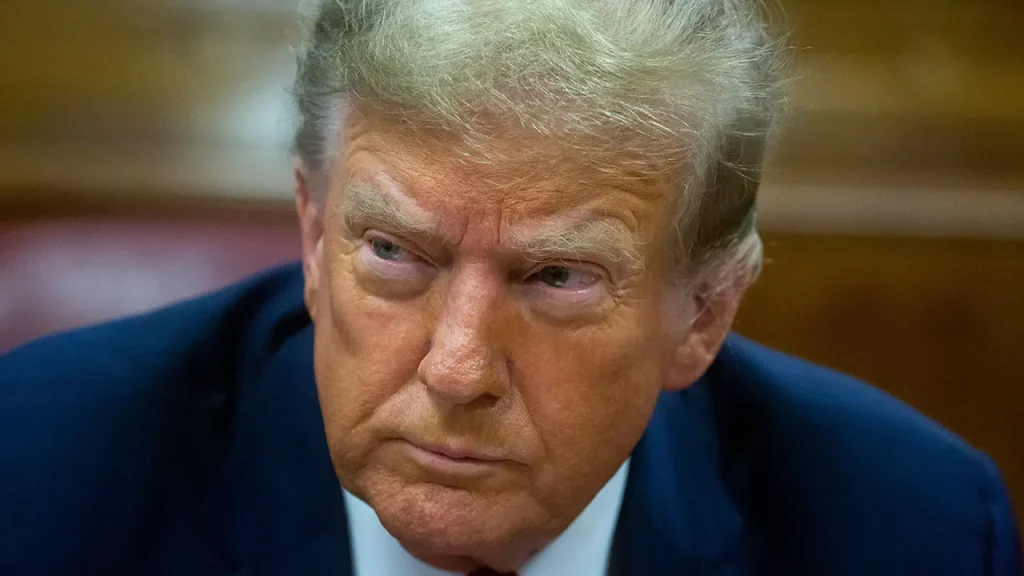The judge presiding over former President Trump’s hush money trial in New York City announced that he would hear arguments on whether Trump had violated a gag order by making public statements about witnesses and their testimony. The district attorney’s office argued that Trump had violated the order three times in social media posts and requested fines of $1,000 for each violation. Trump’s defense attorney stated that the former president was defending himself against attacks by witnesses and has until April 19 to file a written response to the prosecutors’ claims of violating the gag order. The hush money case involves former Trump attorney Michael Cohen paying Stormy Daniels to allegedly silence her claims of an affair with Trump in 2006.
The hush money trial marked the first time a former president stood trial on criminal charges, focusing on allegations that the Trump Organization reimbursed Cohen for payments made to Daniels and falsified records. Trump has denied the affair and pleaded not guilty to 34 charges of falsifying business records. He has criticized the case as a “witch hunt” and “political persecution,” stating it’s an “assault on America.” The trial began with jury selection, where over 500 potential jurors will be asked questions to determine their ability to assess the case fairly. The process is expected to last at least a week, with Trump’s legal team expressing a desire for him to be present during each interview despite logistical challenges.
The prosecution aims to prove that Trump falsified records with the intent to commit or conceal a felony, as they allege the payments made to Daniels were falsely recorded as legal expenses. Trump has been vocal in his defense against the charges, calling it a case that should have never been brought and describing it as an assault on America. The former president reiterated these sentiments from the courthouse, emphasizing that he was facing political persecution and an attack on a political opponent. The trial’s focus on the hush money payment to Daniels before the 2016 election is a significant moment in legal history, with Trump maintaining his innocence throughout the proceedings.
The trial proceedings have included arguments on whether Trump violated a gag order preventing him from discussing witness testimony in the case. The district attorney’s office has accused Trump of violating the order through social media posts and has requested fines for each violation. Trump’s defense team has defended his actions as responses to attacks from witnesses. The trial began with jury selection, where potential jurors will be asked questions to assess their ability to impartially evaluate the case. Despite facing charges of falsifying business records, Trump has maintained his innocence and accused the case of being politically motivated, describing it as an attempt to persecute him personally and as an affront to the American political system.
The trial marks a historic moment as the first time a former president stands trial on criminal charges, with the focus being on payments made to silence allegations of an affair before the 2016 election. Prosecutors are working to prove that Trump falsified records and committed additional crimes in the process. Trump has denied the allegations and criticized the trial as a political witch hunt. The proceedings have involved arguments over a gag order violation and the jury selection process to determine a fair and impartial group of jurors. Despite the challenges, Trump has remained defiant in his denials of wrongdoing and in his assertion that the case is politically motivated persecution.


